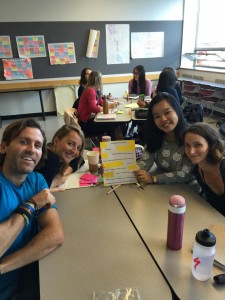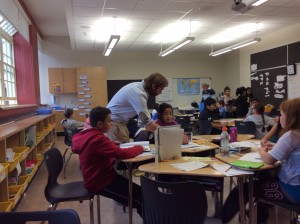This weeks Inquiry class allowed me to get my head back into my inquiry project. I ended off on Christmas break with a vague idea of how to approach my topic, and meeting in groups with partners really tightened the gap to send me in the proper direction. We have like-minded questions, which made it easier to put ourselves in one-another’s shoes and see what steps are best to take next, or what could be refined in our questions to make them manageable.
My original inquiry, ‘How does outdoor education benefit students learning and behaviors’, is pretty clear to me and I have gathered an abundance of resources on the benefits of outdoor education. I’m now going to expand on my question to include, ‘Is it possible to include outdoor education into the new BC curriculum for grades 4-7, and to what extent’. I’m hopeful that my findings will provide some useful tips and resources for myself and fellow teachers.
This week, during math I asked my students (who are data collecting and graphing at the moment), how they would like me to plan their lessons. I gave them a scale of 1-5, 1 being completely inside and 5 being completely outside. We collected the numbers and graphed them to find a strong interest for the outdoors. I hope my inquiry can provide the students with lessons they’ll look forward to!
Chris

 for a while, and spend most of our time on university campus, strategizing different games and concepts to bring into our lesson plans. There’s also been discussion of our actions and demeanour towards students in our classrooms, and I’d like to share a couple of memorable ideas that I’ve tried to embody. Firstly, it’s imperative that a teacher use proper language, and secondly, that they use best judgement when considering what material to teach.
for a while, and spend most of our time on university campus, strategizing different games and concepts to bring into our lesson plans. There’s also been discussion of our actions and demeanour towards students in our classrooms, and I’d like to share a couple of memorable ideas that I’ve tried to embody. Firstly, it’s imperative that a teacher use proper language, and secondly, that they use best judgement when considering what material to teach.